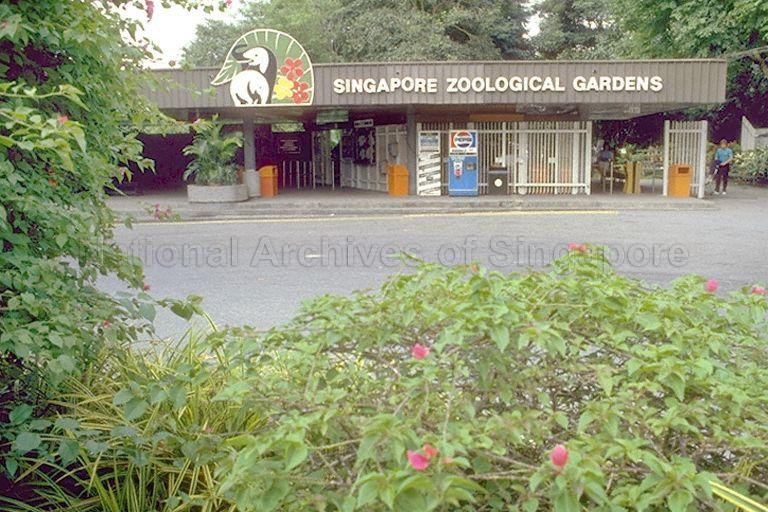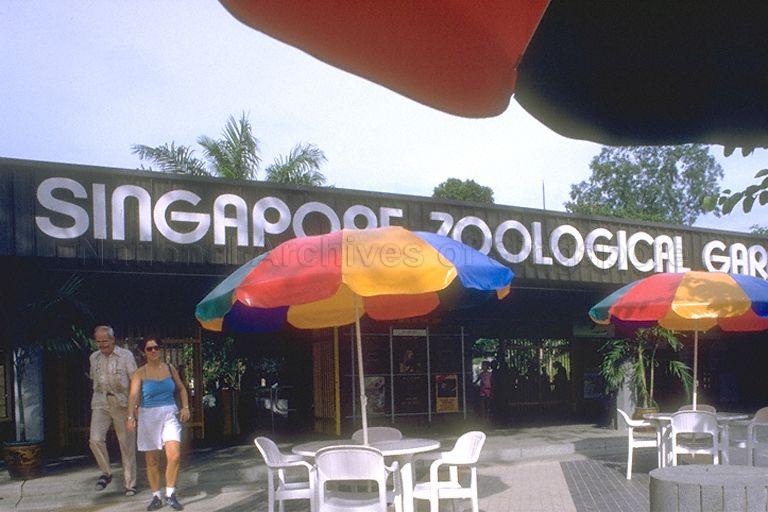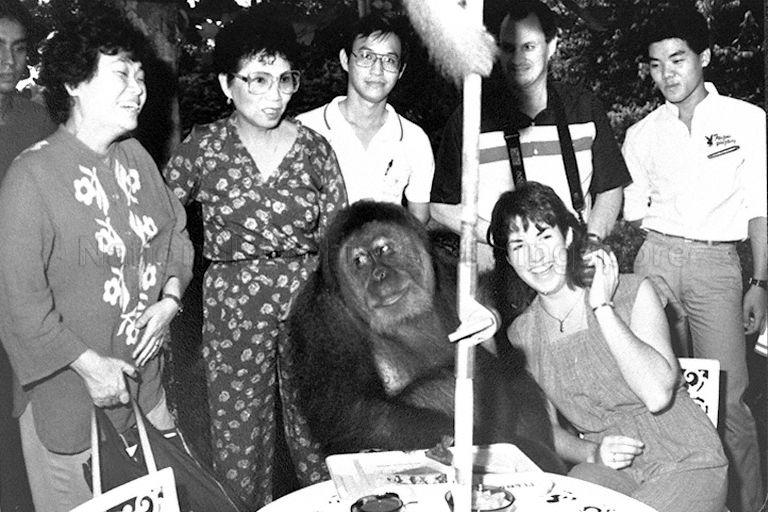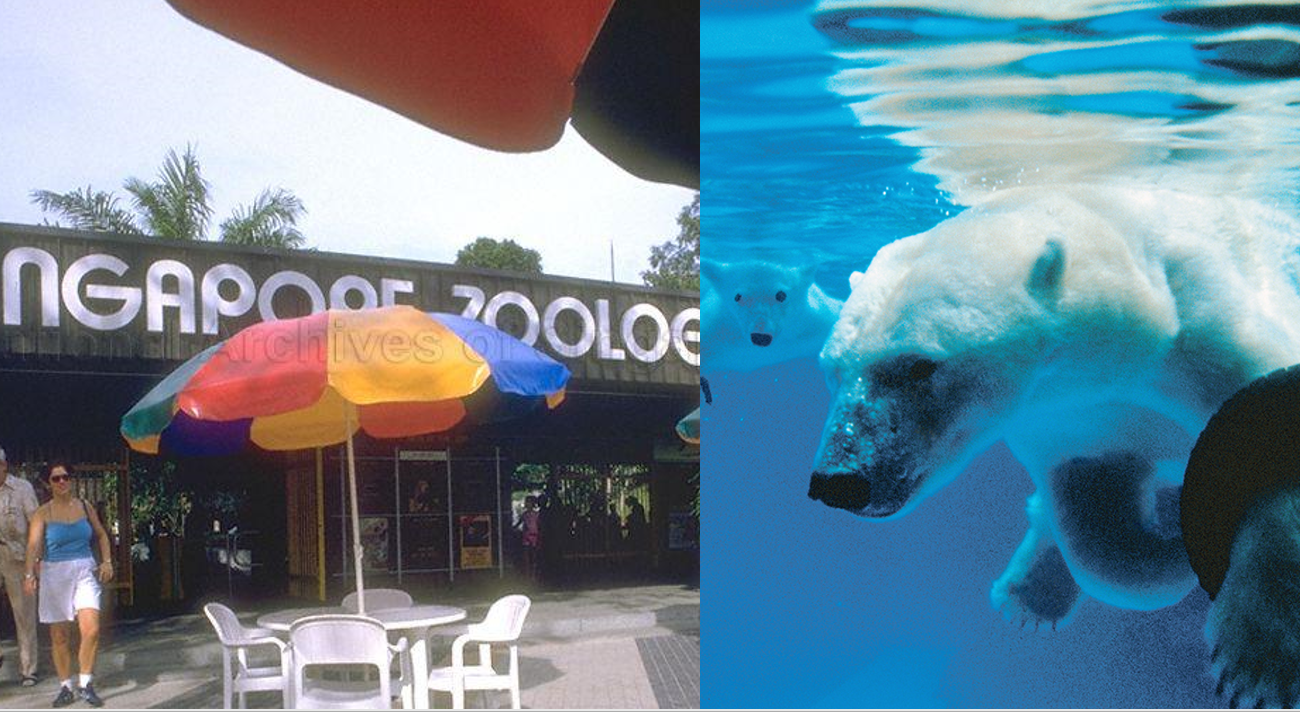The Singapore Zoo was officially opened by then Deputy Prime Minister and Minister for Defence Goh Keng Swee on June 27, 1973.
Advanced zoo designs for 1970s
As of 2013, the Zoo has over 2,800 animals representing over 300 species.
But when it first opened, the zoo initially featured a modest collection of about only 300 animals from some 70 species.
Despite this modest collection, the Singapore Zoo had some of the most advanced zoo designs of the 1970s.
Different from many others of its time, it was one of the world's first open-concept zoos.
 Photo from NAS.
Photo from NAS.
 Photo from NAS.
Photo from NAS.
 Photo from NAS.
Photo from NAS.
Enclosures resemble natural habitat
The animals, instead of being caged, are housed in open enclosures resembling their natural habitats.
As a subsidiary of the Wildlife Reserves Singapore, there are strict guidelines for animal welfare and enclosures.
All exhibits must also be of a certain size and volume to "allow the animal to express its natural behaviour".
 Photo from NAS.
Photo from NAS.
 Photo from NAS.
Photo from NAS.
 Photo from NAS.
Photo from NAS.
Iconic programme
One of the zoo's most well-known programmes, "Breakfast with an Orang Utan", was developed in 1982 to improve the zoo's offerings.
 Tourists posing with Ah Meng in 1988. Photo from NAS.
Tourists posing with Ah Meng in 1988. Photo from NAS.
It was first hosted by Ah Meng, a female orang utan who came to the zoo at age seven.
When Ah Meng passed away in 2008, the programme was subsequently hosted by her granddaughter Ishta.
The programme remains the only one in the world where visitors can have breakfast with orang utans.
[related_story]
Breeding endangered species
On Nov. 13, 1974, just slightly less than two years after it opened to the public, the zoo welcomed its one-millionth visitor.
Today, it has grown to become a tourist attraction with some 1.7 million visitors annually.
But beyond just serving as a tourist attraction, the zoo serves an important role for wildlife.
About 26 percent of the zoo’s animal species are threatened, and the zoo has played a crucial role with its captive breeding programmes for endangered species.
These include the white rhino, king cobra, tiger, Malayan tapir and orang utan.
Top photo composite image from NAS and Singapore Wildlife Reserves.
If you like what you read, follow us on Facebook, Instagram, Twitter and Telegram to get the latest updates.
